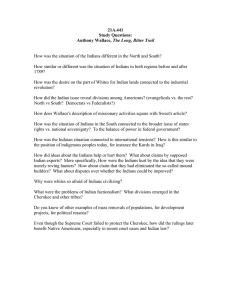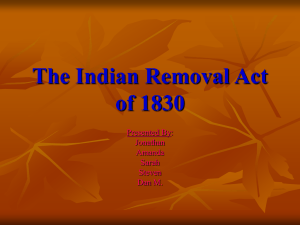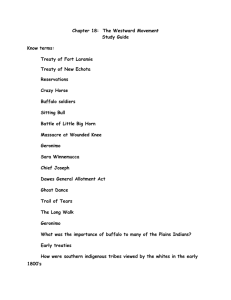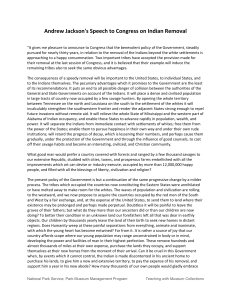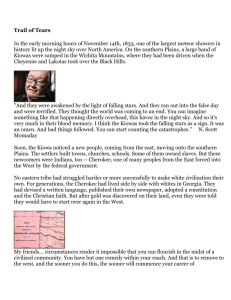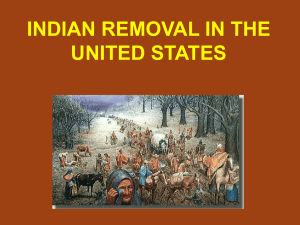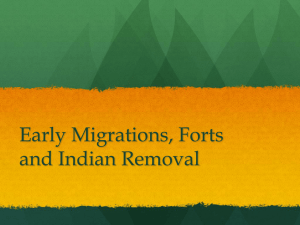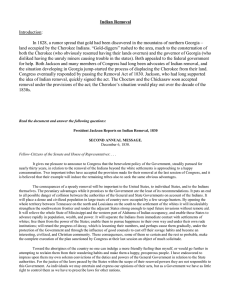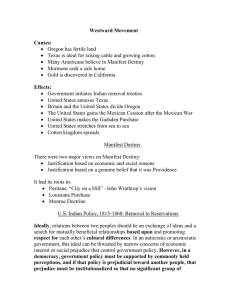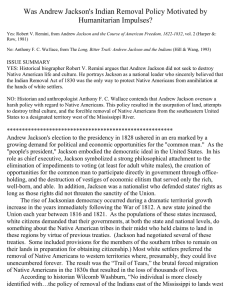Arguments in Favor of Removal of the Cherokee Indians
advertisement
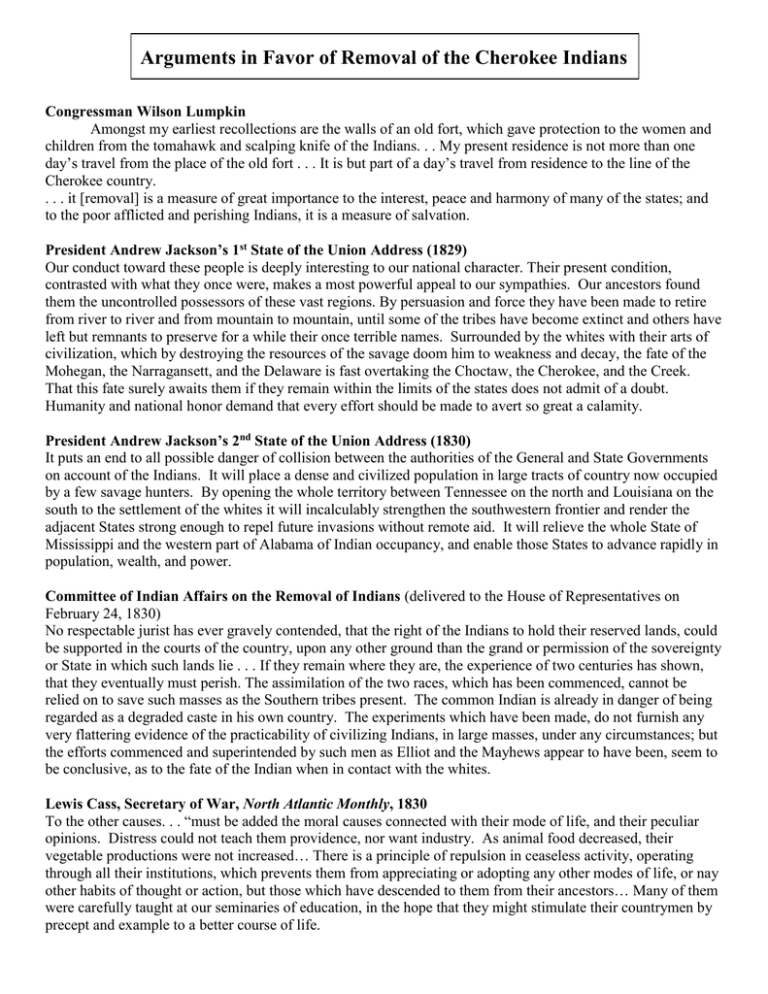
Arguments in Favor of Removal of the Cherokee Indians Congressman Wilson Lumpkin Amongst my earliest recollections are the walls of an old fort, which gave protection to the women and children from the tomahawk and scalping knife of the Indians. . . My present residence is not more than one day’s travel from the place of the old fort . . . It is but part of a day’s travel from residence to the line of the Cherokee country. . . . it [removal] is a measure of great importance to the interest, peace and harmony of many of the states; and to the poor afflicted and perishing Indians, it is a measure of salvation. President Andrew Jackson’s 1st State of the Union Address (1829) Our conduct toward these people is deeply interesting to our national character. Their present condition, contrasted with what they once were, makes a most powerful appeal to our sympathies. Our ancestors found them the uncontrolled possessors of these vast regions. By persuasion and force they have been made to retire from river to river and from mountain to mountain, until some of the tribes have become extinct and others have left but remnants to preserve for a while their once terrible names. Surrounded by the whites with their arts of civilization, which by destroying the resources of the savage doom him to weakness and decay, the fate of the Mohegan, the Narragansett, and the Delaware is fast overtaking the Choctaw, the Cherokee, and the Creek. That this fate surely awaits them if they remain within the limits of the states does not admit of a doubt. Humanity and national honor demand that every effort should be made to avert so great a calamity. President Andrew Jackson’s 2nd State of the Union Address (1830) It puts an end to all possible danger of collision between the authorities of the General and State Governments on account of the Indians. It will place a dense and civilized population in large tracts of country now occupied by a few savage hunters. By opening the whole territory between Tennessee on the north and Louisiana on the south to the settlement of the whites it will incalculably strengthen the southwestern frontier and render the adjacent States strong enough to repel future invasions without remote aid. It will relieve the whole State of Mississippi and the western part of Alabama of Indian occupancy, and enable those States to advance rapidly in population, wealth, and power. Committee of Indian Affairs on the Removal of Indians (delivered to the House of Representatives on February 24, 1830) No respectable jurist has ever gravely contended, that the right of the Indians to hold their reserved lands, could be supported in the courts of the country, upon any other ground than the grand or permission of the sovereignty or State in which such lands lie . . . If they remain where they are, the experience of two centuries has shown, that they eventually must perish. The assimilation of the two races, which has been commenced, cannot be relied on to save such masses as the Southern tribes present. The common Indian is already in danger of being regarded as a degraded caste in his own country. The experiments which have been made, do not furnish any very flattering evidence of the practicability of civilizing Indians, in large masses, under any circumstances; but the efforts commenced and superintended by such men as Elliot and the Mayhews appear to have been, seem to be conclusive, as to the fate of the Indian when in contact with the whites. Lewis Cass, Secretary of War, North Atlantic Monthly, 1830 To the other causes. . . “must be added the moral causes connected with their mode of life, and their peculiar opinions. Distress could not teach them providence, nor want industry. As animal food decreased, their vegetable productions were not increased… There is a principle of repulsion in ceaseless activity, operating through all their institutions, which prevents them from appreciating or adopting any other modes of life, or nay other habits of thought or action, but those which have descended to them from their ancestors… Many of them were carefully taught at our seminaries of education, in the hope that they might stimulate their countrymen by precept and example to a better course of life. Missionary stations were established among various tribes, where zealous and pious men devoted themselves with generous ardor to the task of instruction, as well in agriculture and the mechanic arts, as in the principles of morality and religion… Unfortunately, they are monuments also of unsuccessful and unproductive efforts. What tribe has been civilized by all this expenditure of treasure, and labor and care?… President Andrew Jackson’s Farewell Address (1837) “The states which had so long been retarded in their improvement by the Indian tribes residing in the midst of them are … relieved of the evil; and this unhappy race-the original dwellers in our land – are now placed in a situation where we may well hope that they will share in the blessing of civilization and be saved from that degradation and destruction to which they were rapidly hastening while they remained in the States.” Arguments in Favor of the Removal of the Cherokee Indians

